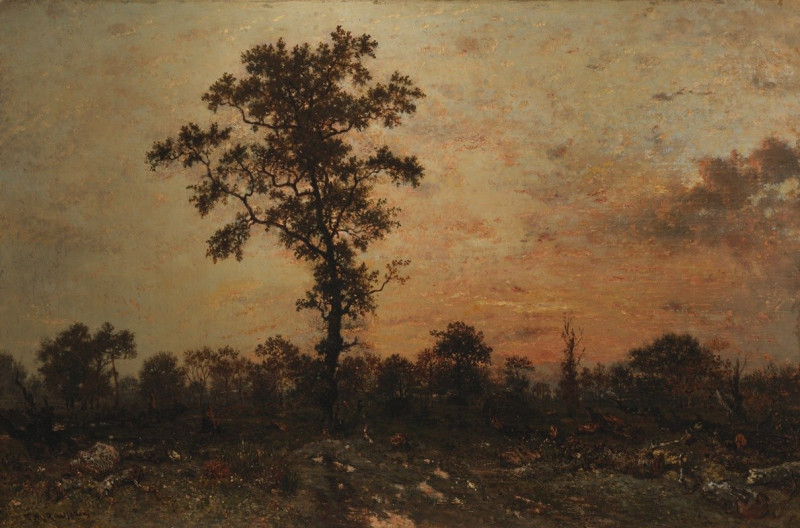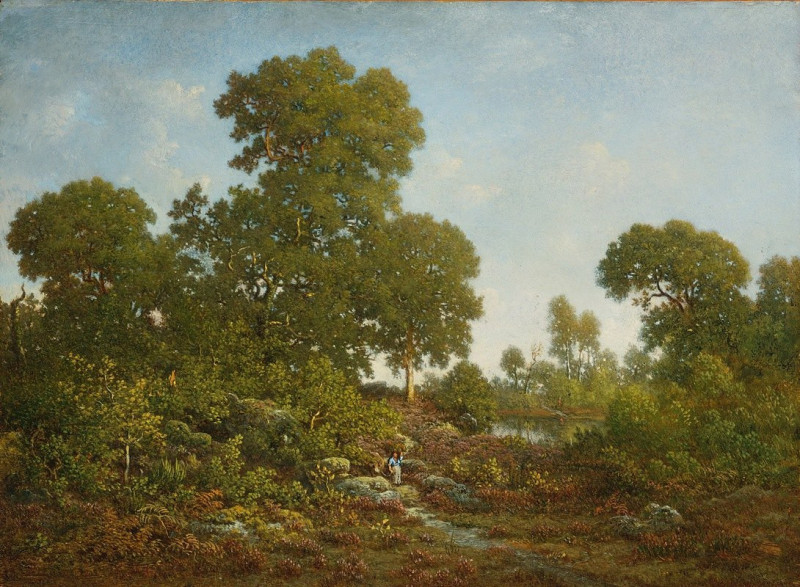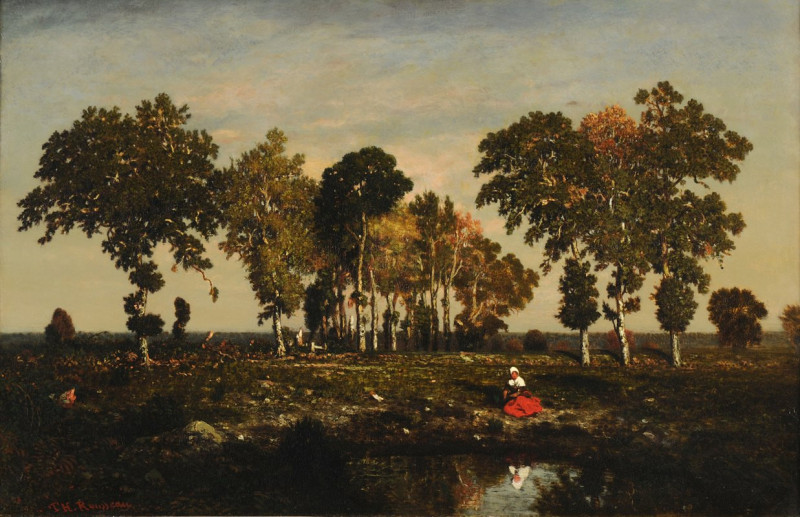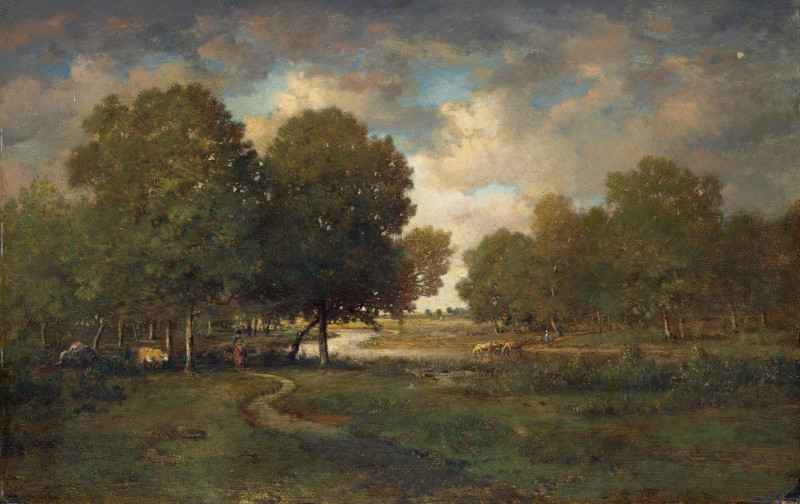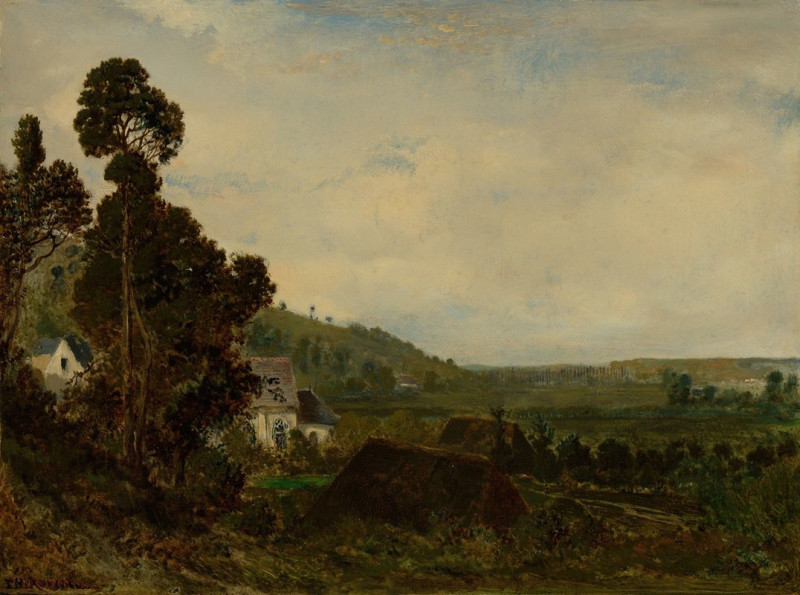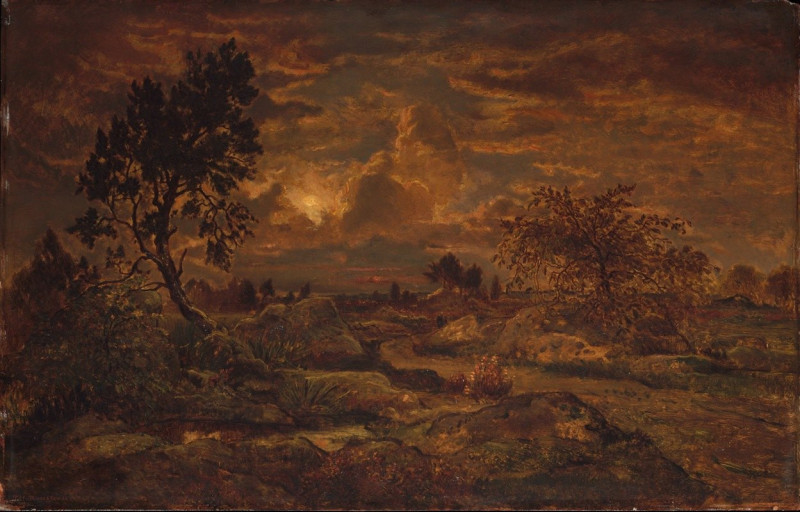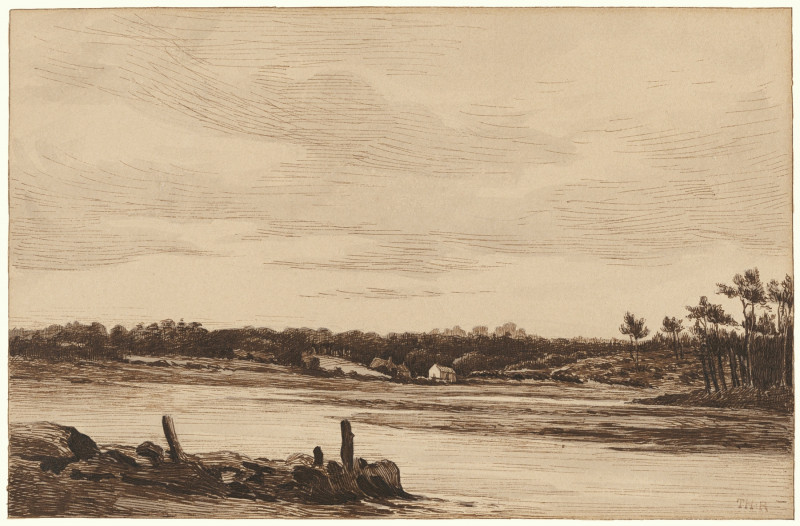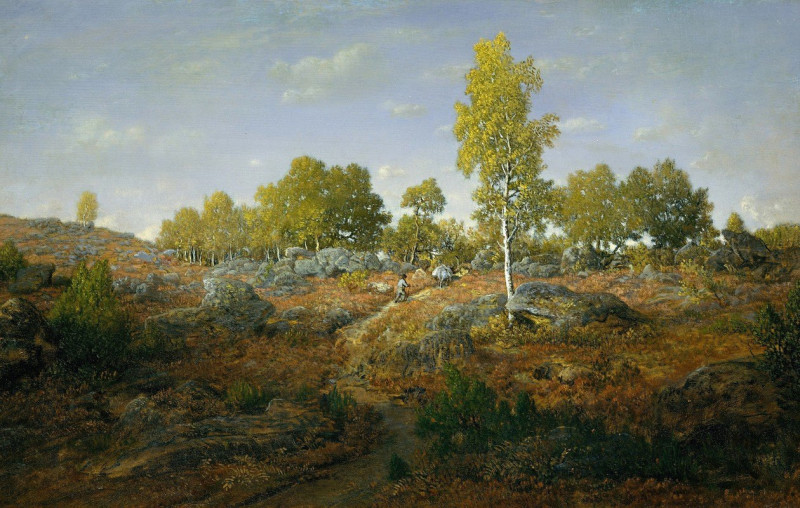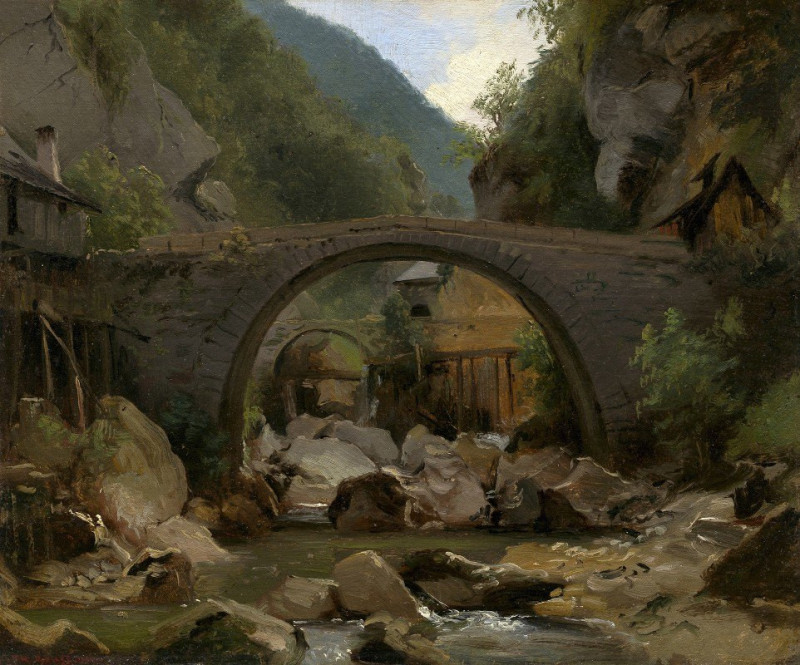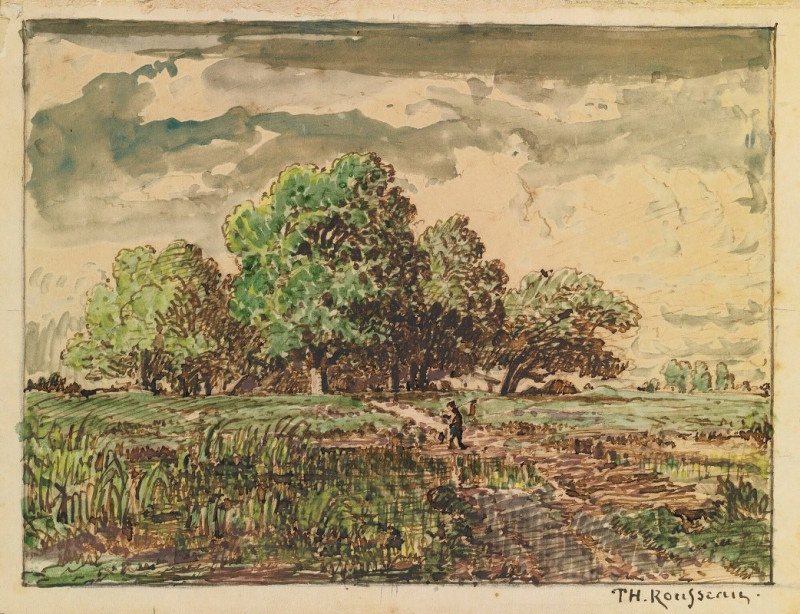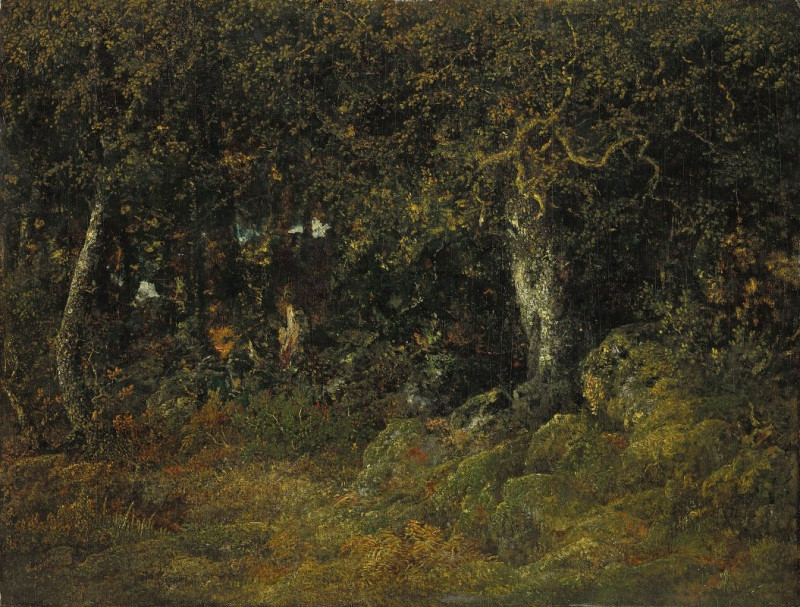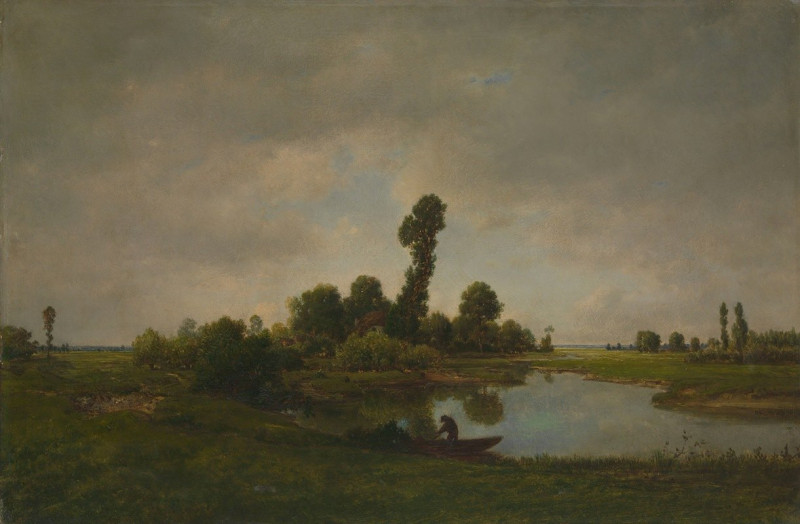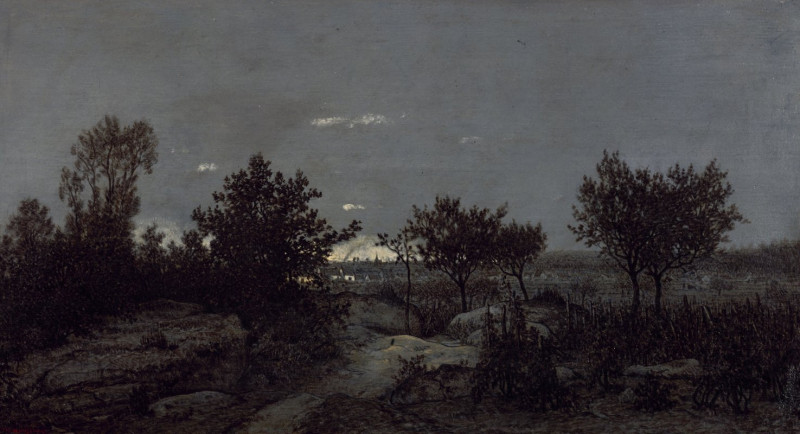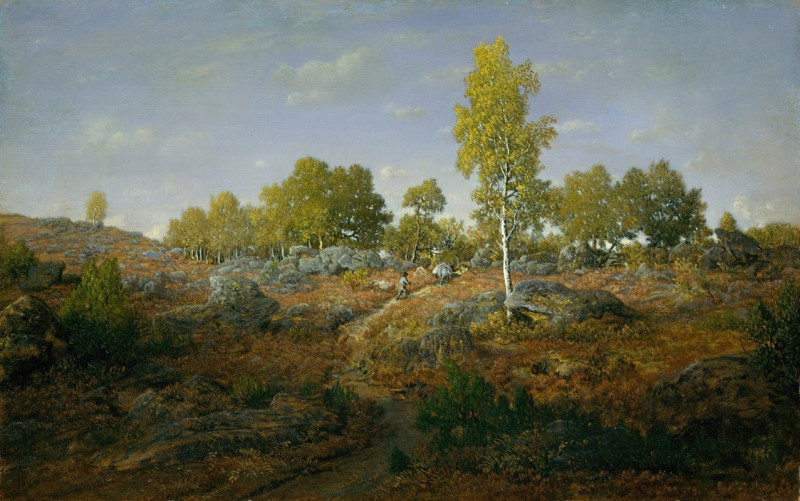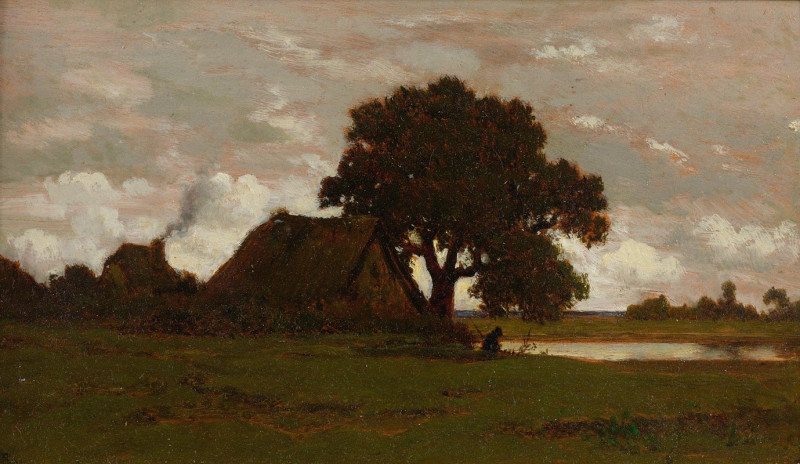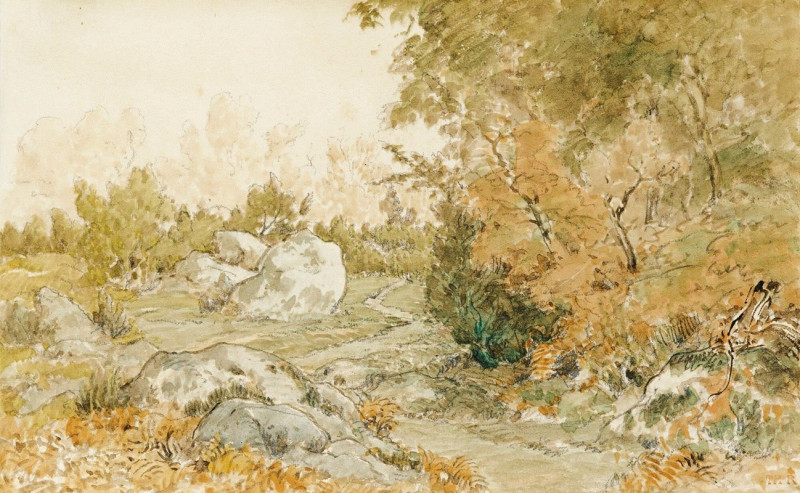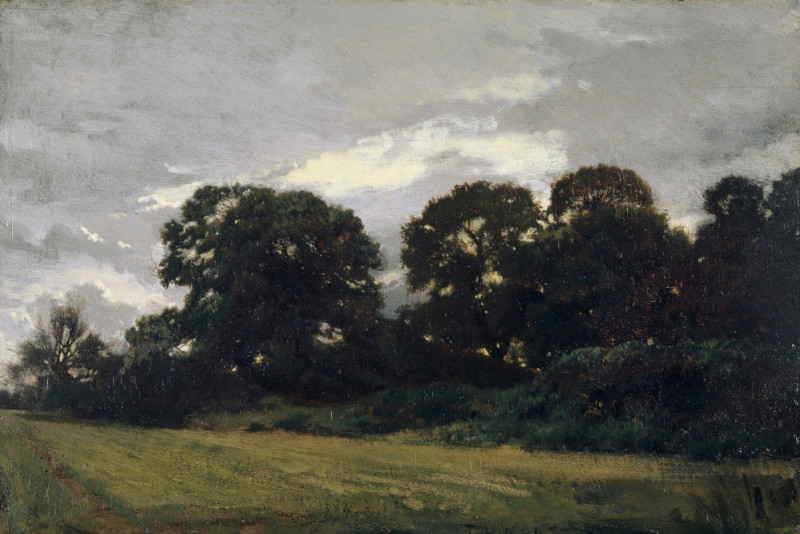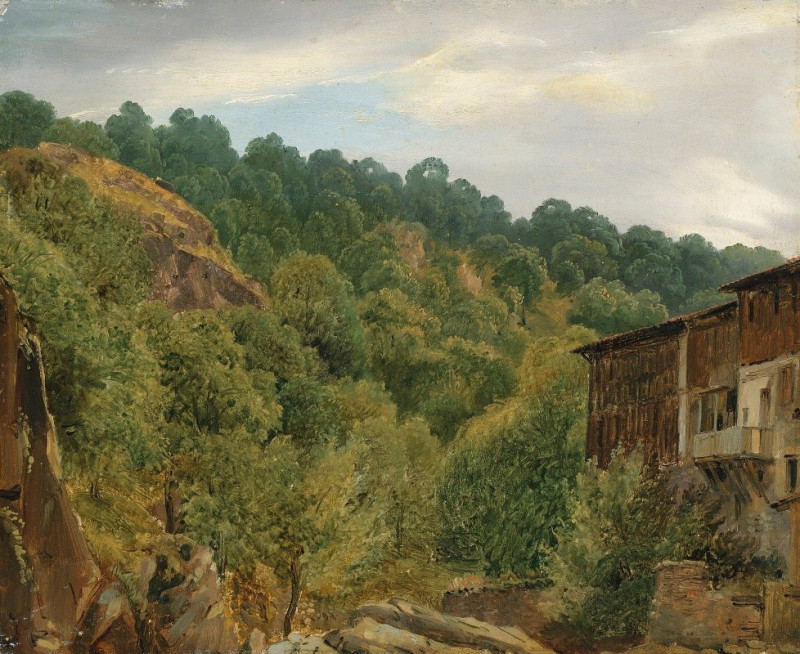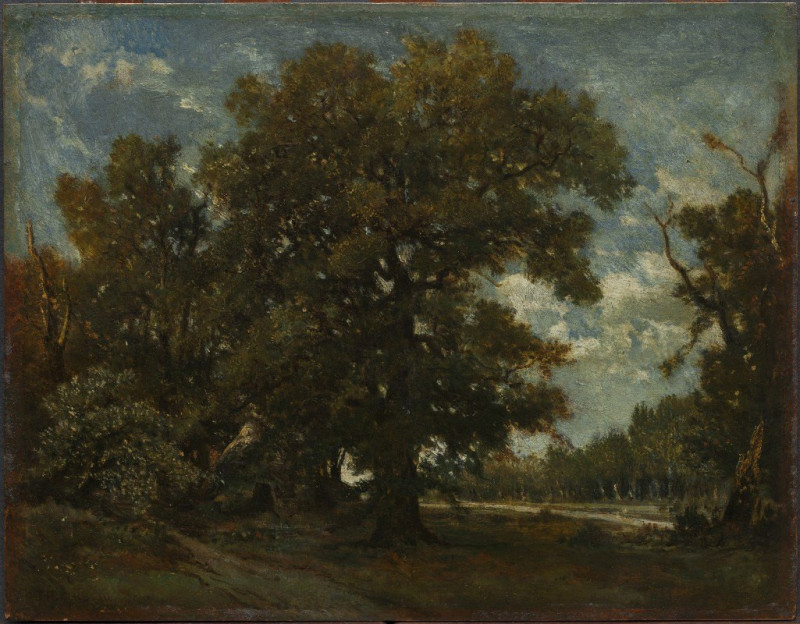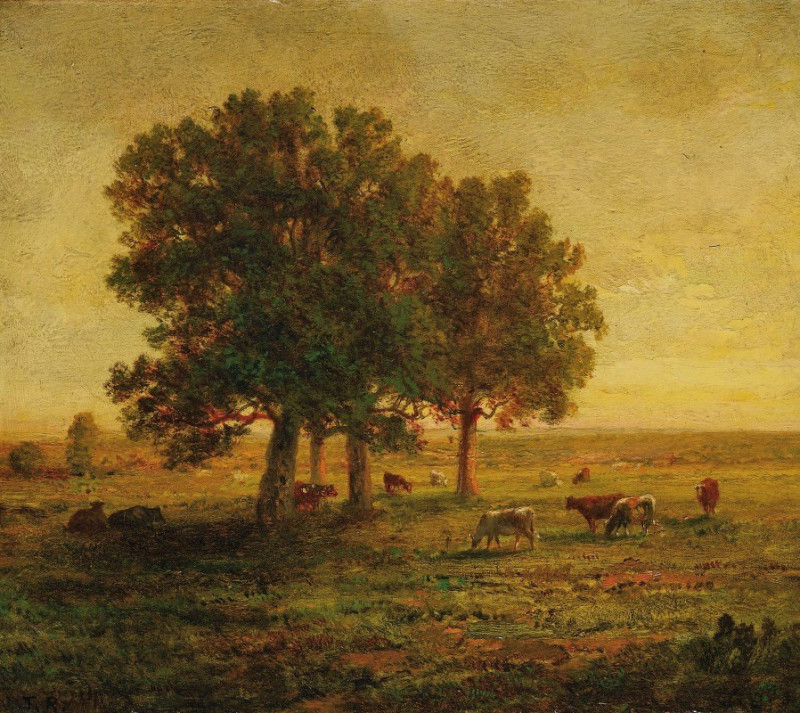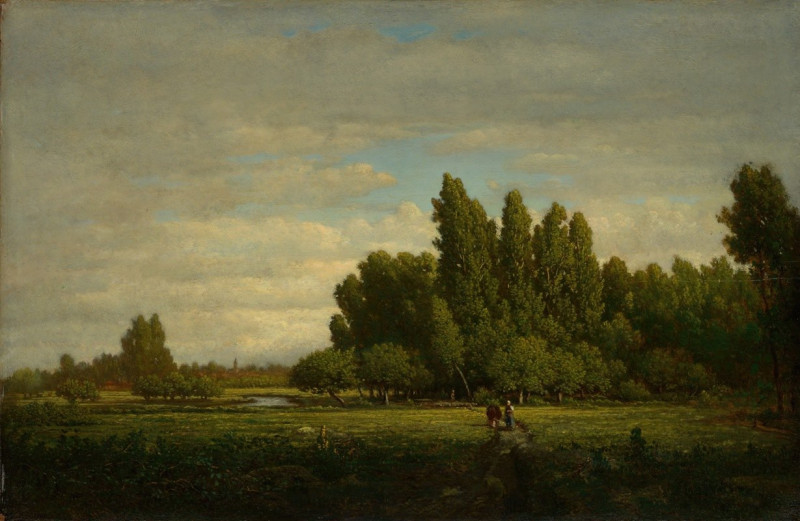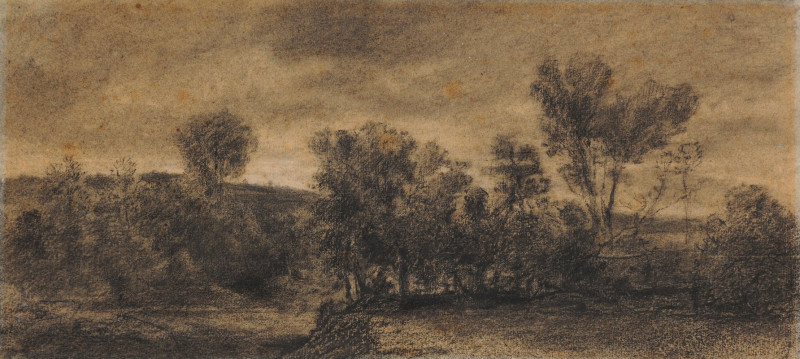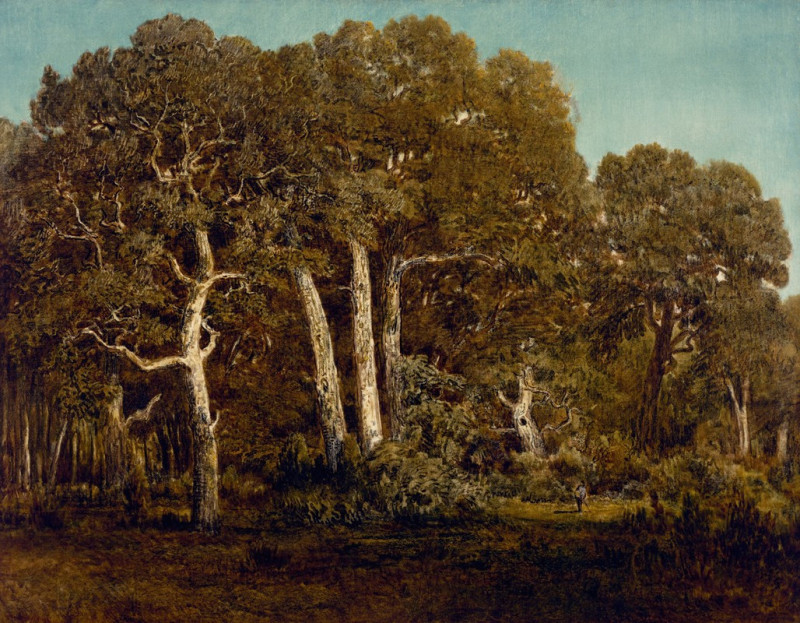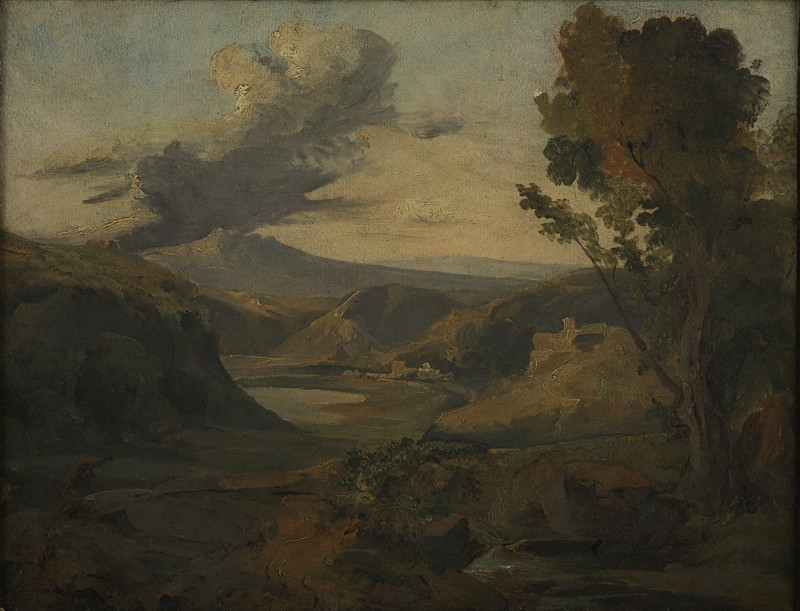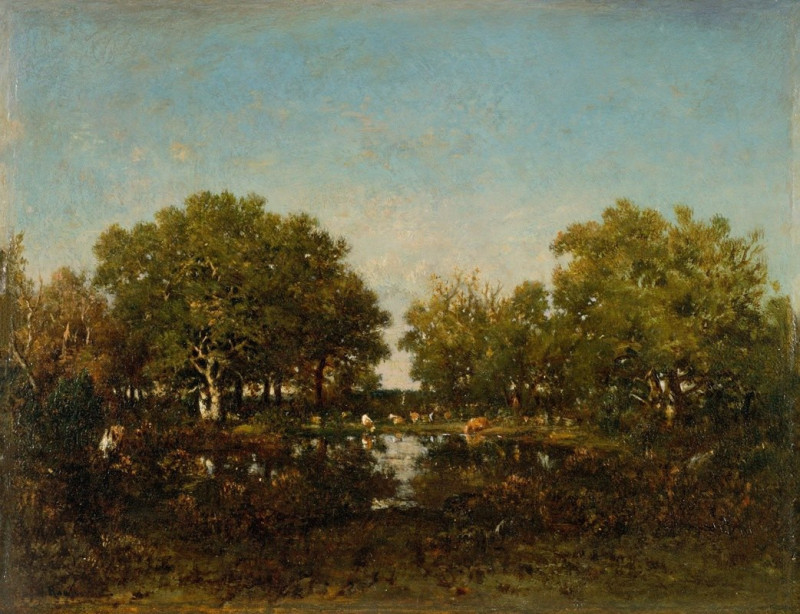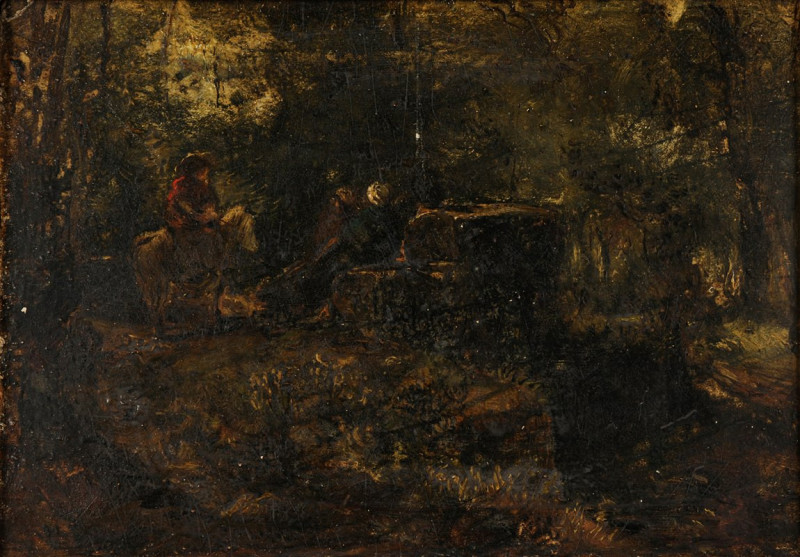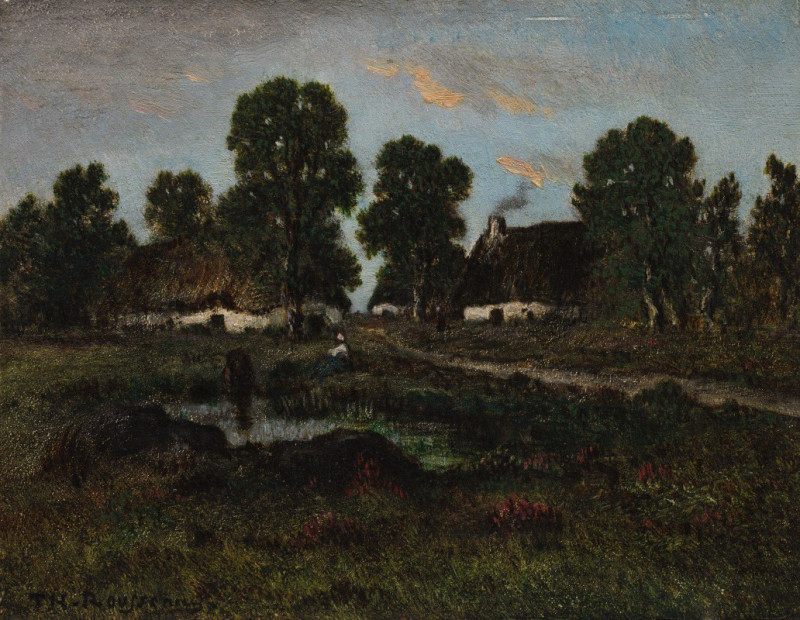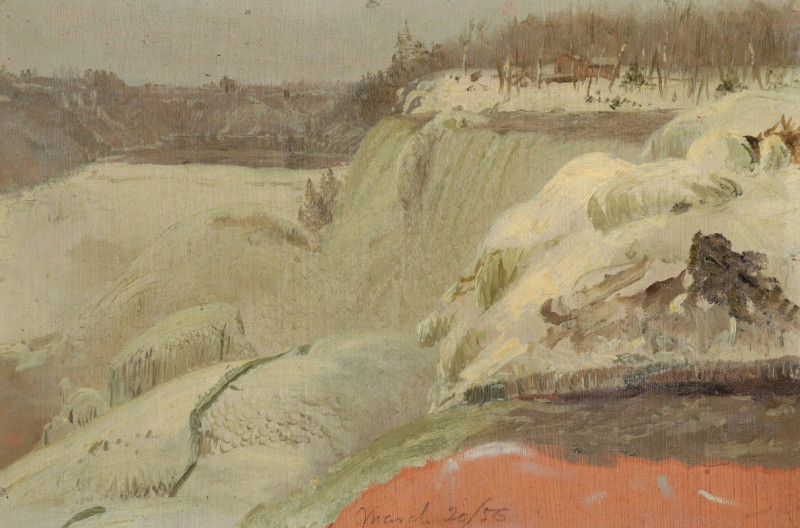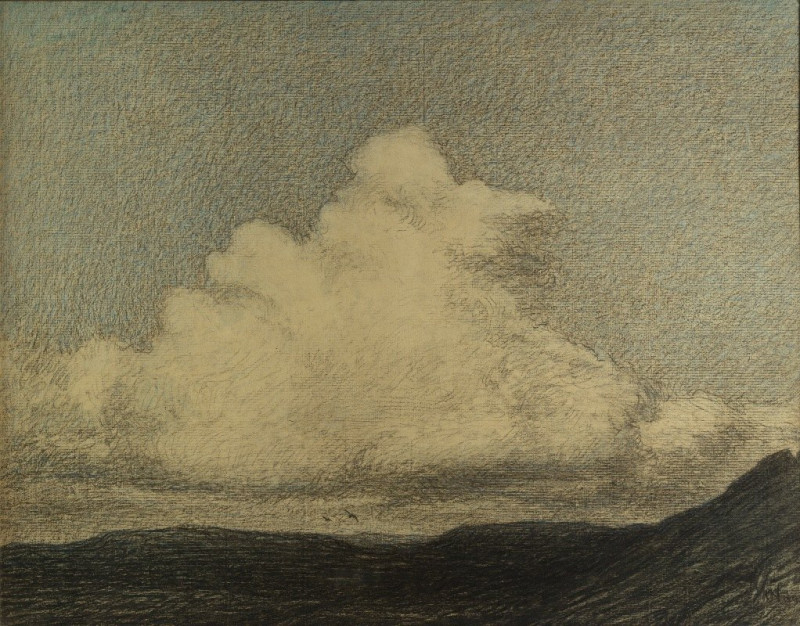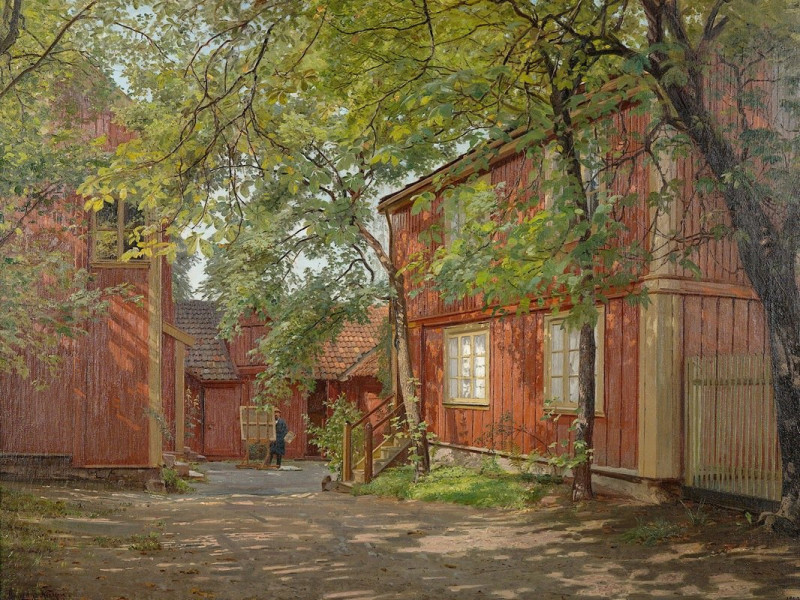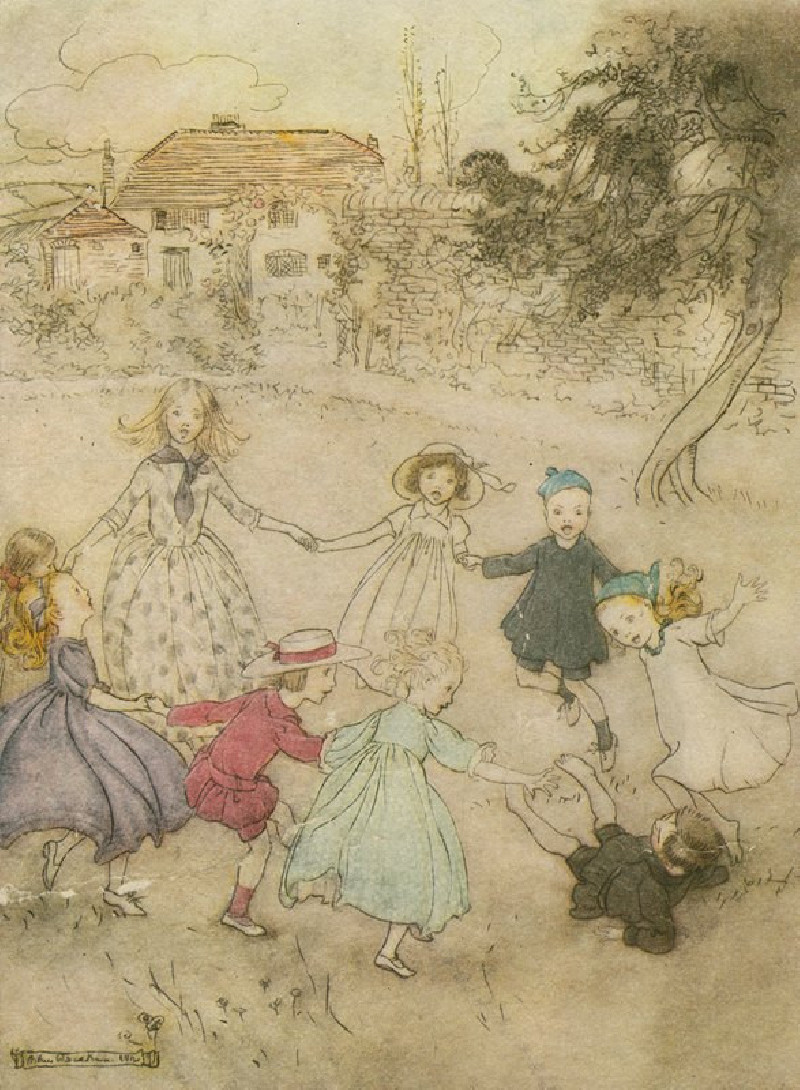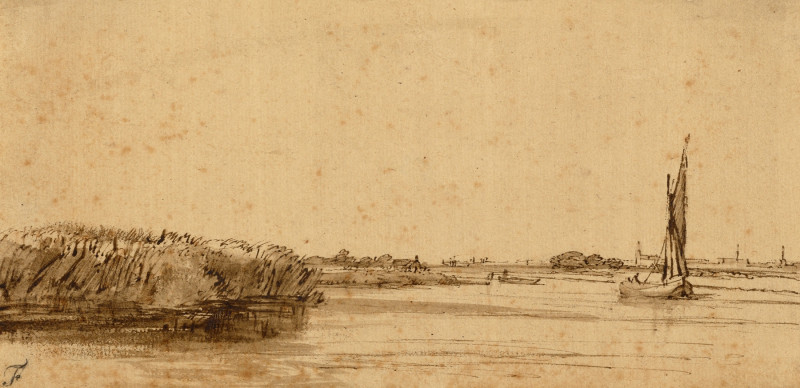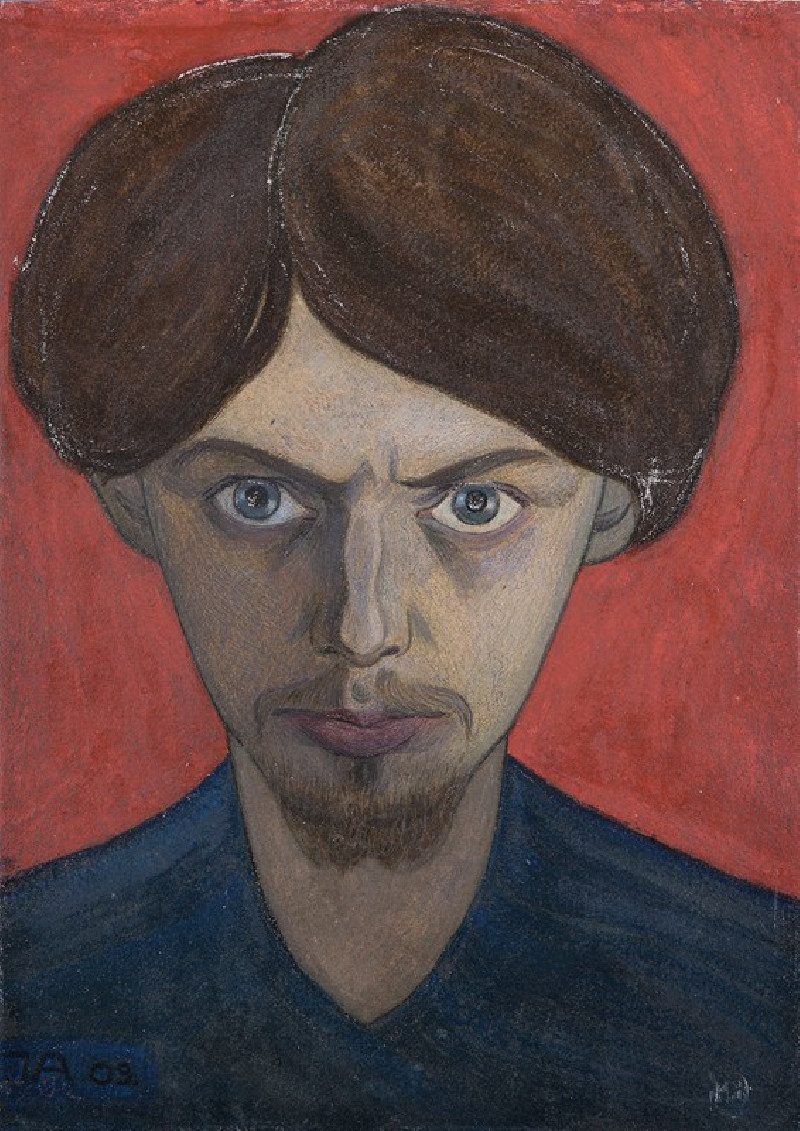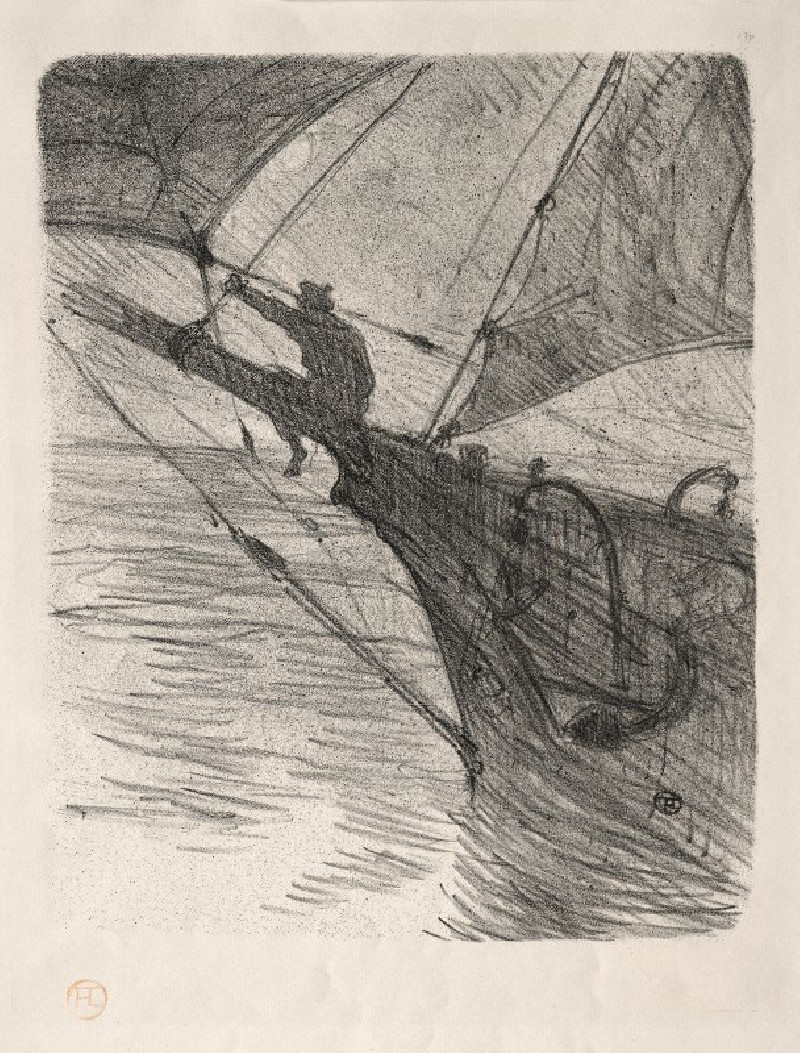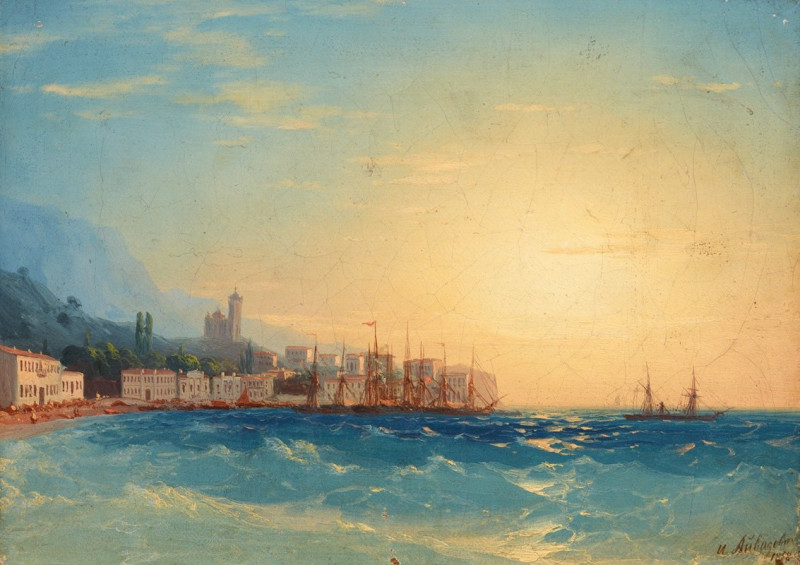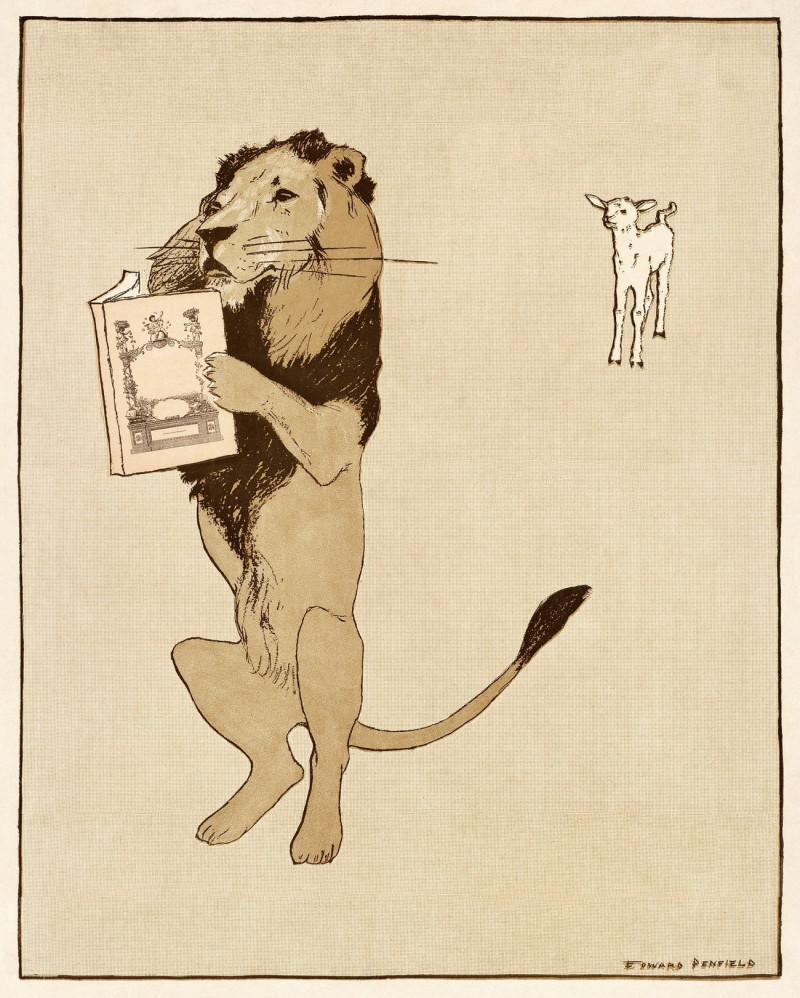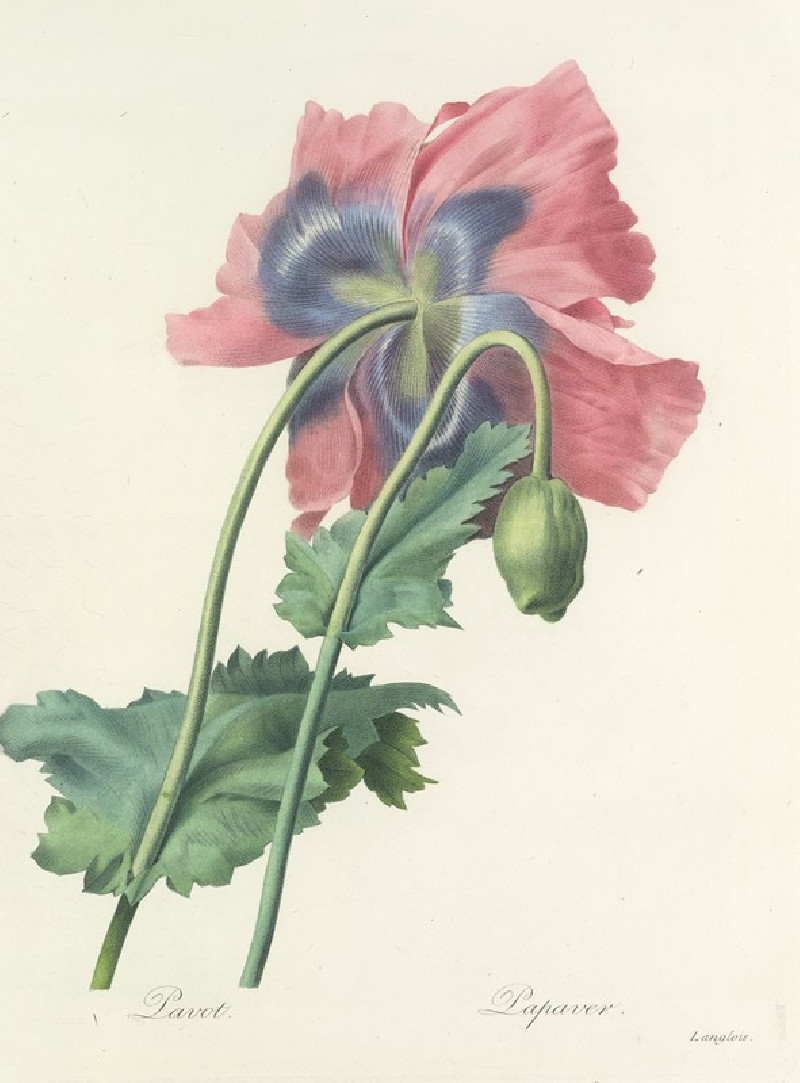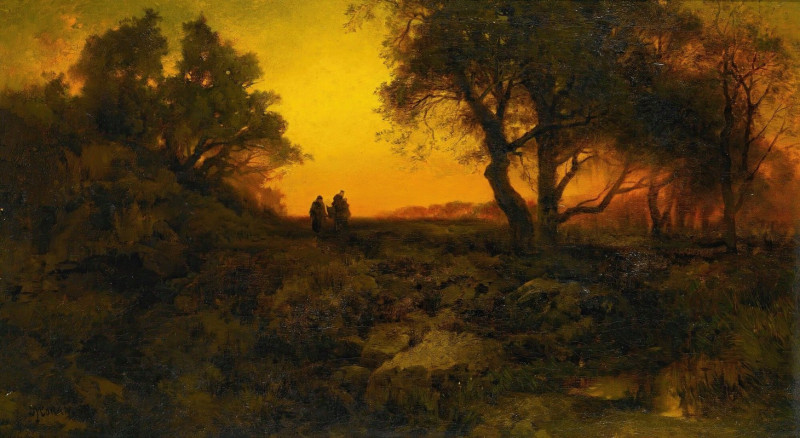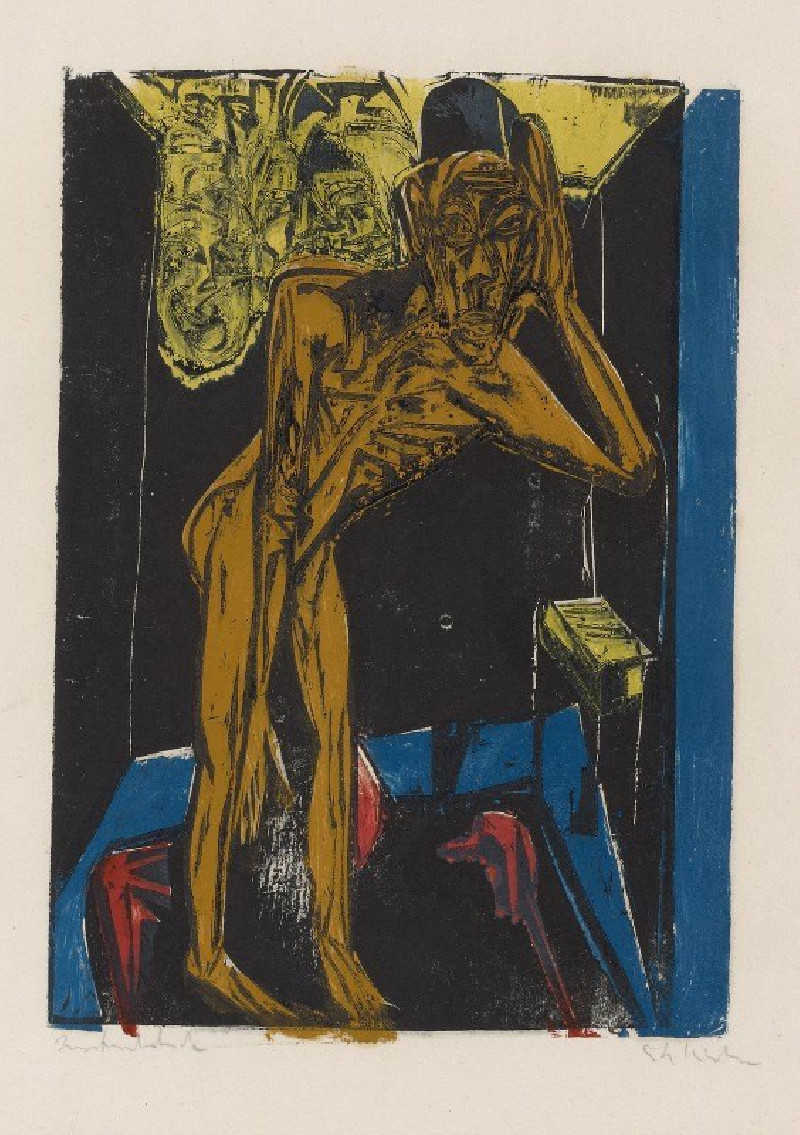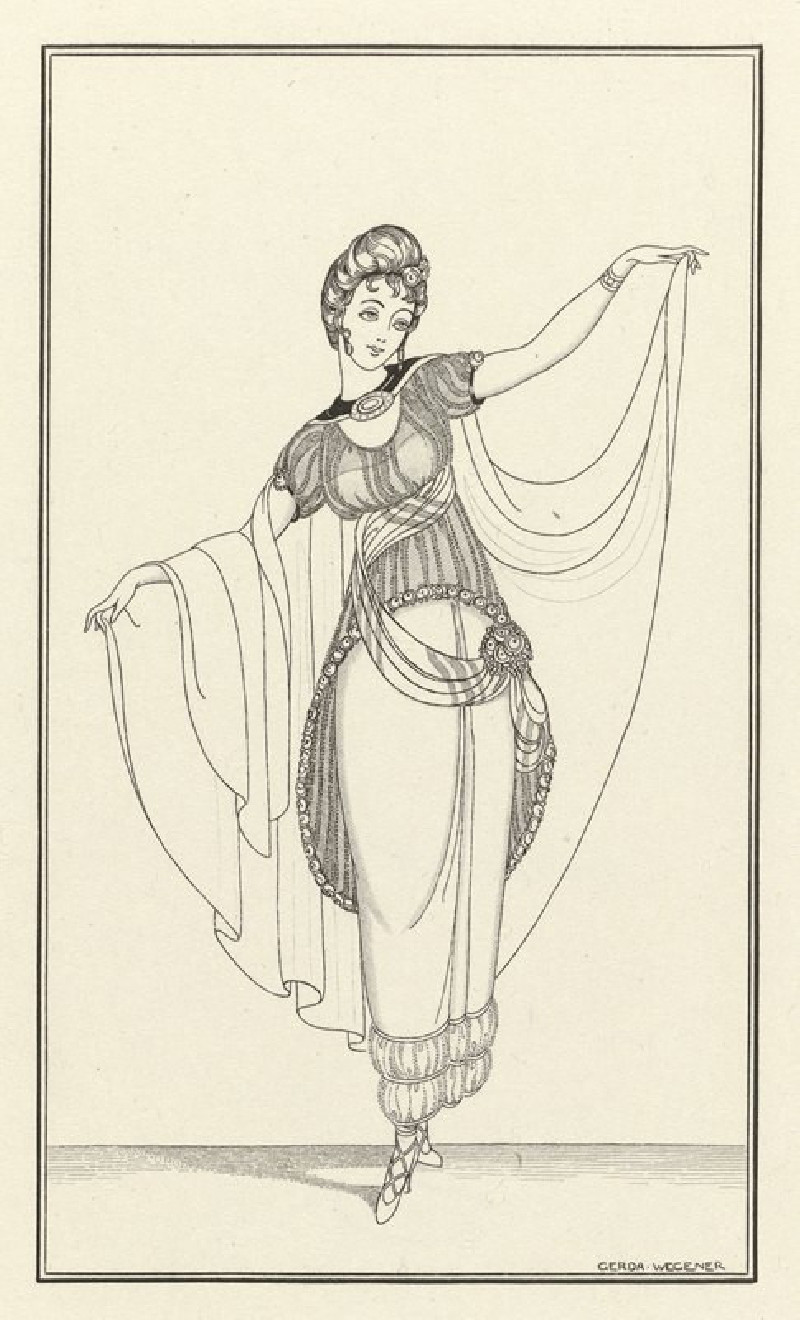Forest of Fontainebleau, Cluster of Tall Trees Overlooking the Plain of Clair-Bois at the Edge of Ba…
Technique: Giclée quality print
Recommended by our customers
More about this artwork
Dive deep into the heart of the Forest of Fontainebleau through the masterful brushwork of Théodore Rousseau. This exquisite painting, full title "Forest of Fontainebleau, Cluster of Tall Trees Overlooking the Plain of Clair-Bois at the Edge of Ba...", captures the untamed essence and rugged beauty of this famous French woodland.In Rousseau's landscape, viewers are treated to a vivid tableau of towering trees, their branches gnarled and twisted, standing as testament to the raw power and mystery of nature. The dense arrangement of the trees in the foreground gives way to a lighter, airy background where the sky peeks through, suggesting the vast openness of the adjoining plain. The contrast between the detailed, dark textures of the bark and the subtle, soft hues of the sky creates a compelling visual depth.This painting not only showcases Rousseau’s ability to convey the physical presence of the forest but also evokes the emotional response one might experience while wandering through such a majestic landscape. The use of light and shadow, combined with the organic, almost moving forms of the trees, pulls the viewer into a moment of both awe and introspection.Théodore Rousseau, a leading figure in the Barbizon school, was renowned for his dedication to portraying natural settings in their true form, and this piece is a testament to his devotion to capturing the untamed spirit of Fontainebleau. Each stroke offers a texture that is almost tangible, a color palette that breathes life, and a composition that balances the immediate with the infinite.We invite you to lose yourself in the "Forest of Fontainebleau.
Delivery
Returns
Étienne Pierre Théodore Rousseau was a French painter of the Barbizon school.
He was born in Paris, France in a bourgeois family. At first he received a basic level of training, but soon displayed aptitude for painting. Although his father regretted the decision at first, he became reconciled to his son forsaking business, and throughout the artist's career (for he survived his son) was a sympathizer with him in all his conflicts with the Paris Salon authorities.


